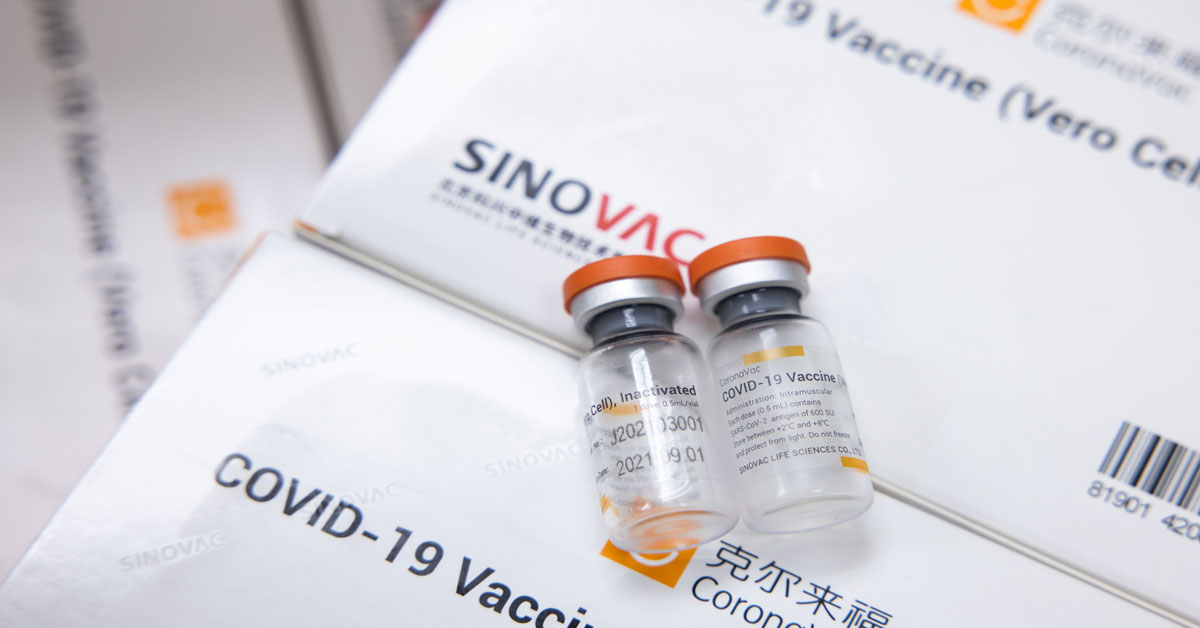Anti-vaxxers – those who are opposed to vaccinations for various reasons – often claim that vaccines are dangerous and that governments and scientists around the world are in cahoots to cover up its adverse side effects.
But as we’ve seen during the COVID-19 pandemic, side effects, serious or mild, are reported soon after they are discovered.
This information allows individuals to weigh the pros and cons of getting a shot of a certain COVID-19 vaccine.
While adverse side effects were documented in less than 1% of mRNA vaccines here, another vaccine has now been linked to an adverse event.
Study Shows There’s a Higher Risk of Bell’s Palsy After First Dose of Sinovac
Those who receive a shot of Sinovac’s vaccine are at a higher risk of developing Bell’s Palsy, a temporary weakness or paralysis in the face, a study has found.
Conducted in Hong Kong, the study documented the side effects experienced by 451,000 participants who received different vaccines.
These included Pfizer-BioNTech and Sinovac’s vaccines.
According to findings published in The Lancet Infectious Diseases journal, there were 28 confirmed cases of Bell’s Palsy following a Sinovac shot, compared to 16 cases who received Pfizer-BioNtech’s vaccine.
While researchers concluded that there was an increased risk of Bell’s Palsy for Sinovac recepients, they believe that the protective effects of the vaccine outweigh the risk of this “generally self-limiting adverse event”.
Self-limiting refers to diseases that resolve on their own.
According to John Hopkins Medicine, Bell’s palsy usually resolves in time and causes no long-term complications.
Recovery can, however, take several months in some cases.
Adverse Effects Reported in 0.12% of mRNA Vaccines
Meanwhile, few adverse effects have been reported in recipients of Pfizer’s and Moderna’s vaccines in Singapore.
Of the more than 7.5 million doses administered between 30 Dec last year and 31 July this year, only 9,403 cases of suspected adverse events were reported.
This accounts for just 0.12% of the doses.
Of these 9,403 cases, 389 reports were classified as serious adverse events, amounting to 0.005% of all doses. These severe reactions included anaphylaxis and other serious allergic reactions.
76 cases of Bell’s Palsy have also been documented.
34 Cases of Heart Inflammation
34 cases of myocarditis and pericarditis – types of heart inflammation – have also been observed in the younger age groups.
20 were under the age of 30, but the Health Sciences Authority said that the local incidence rate is low.
Plus, most of the cases in the younger age group have responded well to treatment, and have been discharged from hospital, it added.
As for heart attacks and strokes, the frequency has not increased since our mass vaccination drive began.
As of Sunday (15 Aug), 76% of our population has been fully vaccinated, while 82% have received at least one dose.
To know more about vaccines in Singapore, watch this video to the end:
Read Also:
- People With Allergic Reactions to First mRNA Dose Can Take Sinovac Vaccine & Will be Considered Fully Vaccinated
- Concise Guide to What Measures Will be Eased from 19 August 2021
Featured Image: PhotobyTawat / Shutterstock.com



